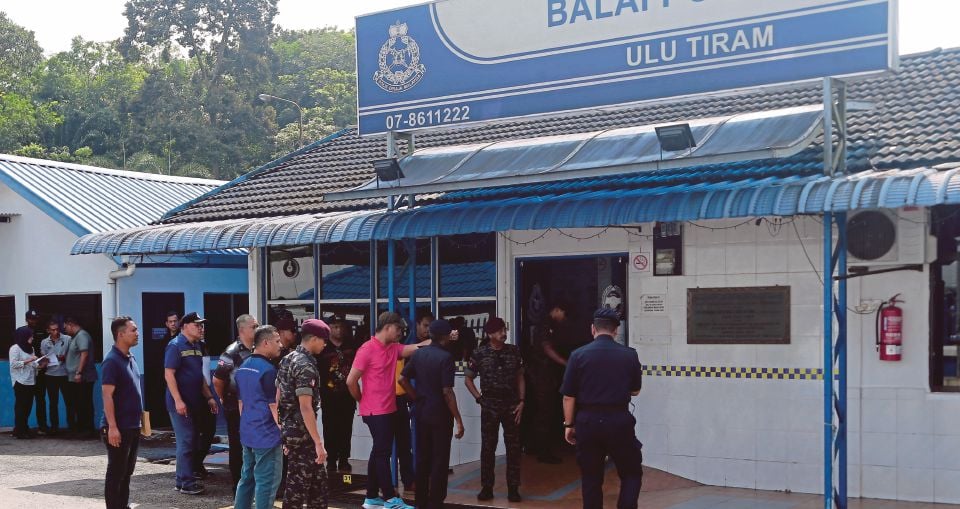THE attack on the Ulu Tiram station by an unknown assailant (now identified) in the wee hours of Friday (May 17) morning tormented and shocked the entire nation to its core.
There’s been comment on whether this was a staged attack or an isolated one. Before one can adequately articulate and formulate new ideas about this attack, it’s imperative to have sufficient knowledge about the assailant’s background and history.
The assailant did not have a criminal record and therefore was not someone under the police radar. However, given that the father was a known Jemaah Islamiyah (JI) member in the 90s and 2000s, questions arise on whether violent ideological thoughts can simply pulverise over time or continue to grow.
The attack by the assailant may also stem from years of anger, grudge, and frustration towards the authorities, who grew up witnessing the father’s detention and his family’s hardship, which resulted in the vicious attack at the Ulu Tiram police station causing the deaths of two police constables and seriously wounding one police corporal.
The news stating that the assailant and his other siblings did not receive formal education and were homeschooled by their father establishes the learning theories, which describe how people absorb, process, and retain information and are influenced by their master’s teachings—the father in this case. Therefore, being indoctrinated by their master is inevitable.
While homeschooling in Malaysia is allowed, it is only a privilege and not a right. Homeschooling in Malaysia is only granted to parents who have children with chronic health problems and need close care from their guardians. The homeschooling mentioned in a news report might refer to informal homeschooling, which provides impunity to the homeschool teacher, the father in this case.

This gives rise to further questions such as the father’s disengagement from violent ideology, the re-integration process of the father and family members, the reason for homeschooling, their social re-integration with the immediate community and their socio-economic status.
From a criminological point of view, the social learning theory asserts that people learn to be aggressive by observing others acting aggressively to achieve some goal or being rewarded as a direct result of committing violent acts. Therefore, individuals may become aggressive by imitating role models.
The assailant’s act could and might have been predicted by his family members or people who might have been acquainted with him. In this case, we can postulate that the attack may have been reinforced vicariously by the assailant from the learning he has observed or learned.
Whatever the motivation is, the attack has clearly shown that crime can occur unexpectedly and at a time when we are most vulnerable. While we strive towards social justice and
cohesion, we must be quick to respond to violent ideological risks and threats. In this regard, we cannot only rely on the authorities but also need to take an active role as citizens to ensure that our family members, relatives, and neighbours are in check and do not pose a threat to society. – May 18, 2024
Dr Haezreena Begum Abdul Hamid is a criminologist and Deputy Dean (Postgraduate Degree) at the Faculty of Law, Universiti Malaya.
The views expressed are solely of the author and do not necessarily reflect those of Focus Malaysia.
Main photo credit: Harian Metro










